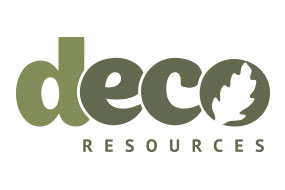We planted kale and Swiss chard in our compost!
If you haven’t already noticed, our team geeks out over soil. You might even call us dirt nerds. From agricultural productivity to public health, the stuff under our feet is critical to our survival on Earth, even if you don’t think about it all that often. Since April, DECO has joined with Worm Return on a variety of projects that seek to improve soil quality. Working together, our compost operation at the Hilltop Urban Farm that has diverted over 20 tons of food and yard waste from landfills.
The resulting compost is available for sale to local residents and businesses so they can have high quality soil in their gardens. We’re proud that our products are used to improve the health of our community! Contact us to try it for yourself.
But wait, that’s not all!
What kind of soil scientists would we be if we didn’t test the quality and progress of that material too?
Typically, we screen our compost for 13 potentially hazardous contaminants, like lead and arsenic, while also testing it for nutrients like potassium, nitrogen, and phosphorus. When the numbers look good, it’s ready for field testing. At our research field in St. Clair, we blend the existing soil with our compost, along with amendments such as new topsoil and Wormcast. Worm castings are the byproduct of vermiculture and the central product of Worm Return, produced in Pittsburgh’s Allentown neighborhood. We’ve planted kale and Swiss chard to test the productivity of these various soil blends. You can watch them grow and learn along with us. Follow us on Twitter and Instagram to see the progress and join the conversation.
AgTech in Pittsburgh
Want to get involved? Join us at the AgTechPgh Summit at Phipps Conservatory on September 27 from 12-4 pm to participate in the amazing work being created by companies here in Pittsburgh. Register online: agtechpgh.org/. See you there!





